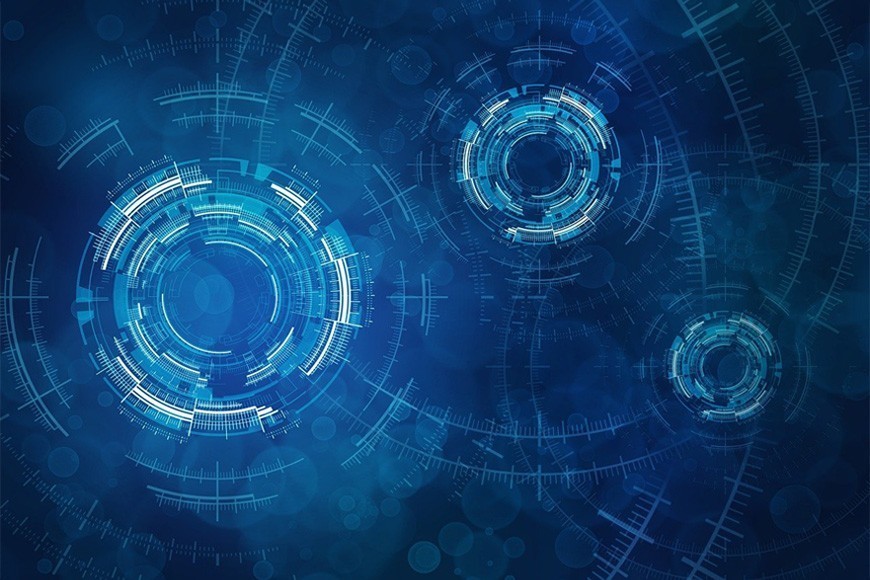Certified Program In IoT
Certified Program In IoT – Course Overview

Course Name: Certified Program In IoT
Course Duration: 3 Months
Course Overview:
The internet of things, or IoT, is a system of interrelated computing devices, mechanical and digital machines, objects, animals or people that are provided with unique identifiers (UIDs) and the ability to transfer data over a network without requiring human-to-human or human-to-computer interaction. The internet of things helps people live and work smarter, as well as gain complete control over their lives. In addition to offering smart devices to automate homes, IoT is essential to business. IoT provides businesses with a real-time look into how their systems really work, delivering insights into everything from the performance of machines to supply chain and logistics operations. Careers in IoT are relatively new, and deals a lot with innovation. Since it is an uncharted territory, it needs brain power of lot of engineers to define and develop it properly. IoT engineers are going to be very much in demand in the coming years. So, the answer is a big yes, IoT engineers are in a huge demand! It will create the next big gold rush in the job market.
Course Content:
Module1: Programming Language Using C
- Introduction to C
- Software description
- Compilation stages of C programming
- C Program structure
- C input and Output (I/O)
- C Format specifier
- C Token
- C Identifiers
- C Keyword
- C Data types
- C Arrays
- C Strings
- C Storage classes
- C Constant
- C Operators
- C Variables
- C storage Classes
- C Pre-processors
- C Type casting
- Conditional Branching control statements
- Conditional looping control statements
- Error Handling
- C Functions
- C Function arguments
- C Loops
- C Data structure
- C Variable scope
- C Pointers
- C Memory management
- GNU GCC compiler
- Creating libraries
- Make files
- C Case Study1
Module2: 8051 Microcontroller
- Microprocessor Vs Microcontroller
- Von Neuman Vs Harvard architecture
- CISC Vs RISC
- Introduction to 8051 Microcontroller
- Timers & Counters
- Interrupts
- UART (Tx/Rx)
- External hardware interfacing with 8051
- LEDS
- SSD (Common Anode and Common Cathode)
- Motor interfacing (DC motor
- Stepper motor
- Servo motor)
- SPDT Relay interfacing
- LCD interfacing (4 Bit mode & 8 Bit mode)
- Matrix keypad
- ADC (Analog to Digital Converter)
- Serial communication using UART
- HC-05 Bluetooth interfacing
Module 3: PIC16F877A Microcontroller
- Introduction to PIC16F877A
- High performance RISC CPU features
- On – Chip peripherals
- GPIO Ports: Input / Output configuration
- Timers & Counters
- Interrupts
- CCP modules
- USART
- External hardware interfacing with PIC16F877A
- SSD (Common Anode and Common Cathode)
- Motor interfacing (DC motor/ Stepper motor/ Servo motor)
- SPDT Relay interfacing
- LCD interfacing (4 Bit mode & 8 Bit mode)
- Matrix keypad
- ADC (Analog to Digital Converter)
- Serial communication using USART
Module4: IoT Development Using Arduino UNO With ESP32/ESP8266
- History of Microcontrollers
- Arduino Hardware description
- Installation of Arduino IDE
- Installation of Board definition in Arduino IDE
- LED blinking
- Task on LED blinking
- Serial communication basics
- USB to serial conversion
- USART/UART protocol in detail
- Serial print Operation
- Task on Serial print operation
- Serial read Operation
- Task on Serial read Operation
- Interfacing DHT22 with Arduino uno
- Task on DHT22 Interface
- Brief Introduction to the I2C protocol
- Interfacing SI7021 with Arduino uno
- Interfacing BMP180 with Arduino uno
- Interfacing LCD with Arduino uno using I2C LCD driver
- Brief Introduction to SPI protocol
- Interfacing BMP280 with Arduino uno
- Task using both I2C and SPI
- Introduction to pulse width modulation
- Interfacing motor with Arduino uno using L298N driver module
- Task using PWM
- Introduction to Network and Internet
- Introduction to Internet of Things
- Introduction to Thingspeak and configuration
- Interfacing Arduino uno with ESP8266/ESP32
- Sending GET Request to the cloud
- Task on GET Request
- Sending POST Request to the cloud
- Task on POST Request
- Introduction to server
- Establishing socket server on Arduino uno with Esp8266
- Task on Socket server
- Introduction to Relay
- Interfacing Relay with Arduino uno
- Controlling home appliance using Relay with Arduino uno
Module5: Internet Of Things (ESP32/ESP8266):
- ESP32 Architecture
- ESP32 Hardware description
- Installation of Arduino IDE
- Installation of Board definition in Arduino IDE
- LED blinking
- Task on LED blinking
- Serial communication basics
- USB to serial conversion
- USART/UART protocol in detail
- Serial print Operation
- Task on Serial print operation
- Serial read Operation
- Task on Serial read Operation
- Interfacing DHT22 with ESP32
- Task on DHT22 Interface
- Brief Introduction to the I2C protocol
- Interfacing SI7021 with ESP32
- Interfacing BMP180 with ESP32
- Interfacing LCD with ESP32 using I2C LCD driver
- Brief Introduction to SPI protocol
- Interfacing BMP280 with ESP32
- Task using both I2C and SPI
- Introduction to pulse width modulation
- Interfacing motor with ESP32 using L298N driver module
- Task using PWM
- Exploring inbuild Touch sensor in ESP32
- Introduction to Network and Internet
- Introduction to Internet of Things
- Introduction to Thingspeak and configuration
- Sending GET Request to the cloud
- Task on GET Request
- Sending POST Request to the cloud
- Task on POST Request
- Introduction to server
- Establishing socket server on ESP32
- Task on Socket server
- Introduction to Relay
- Interfacing Relay with ESP32
- Controlling home appliance using Relay with ESP32
Real Time Project:
- Smart agriculture system
- Smart gas leakages monitoring system
- Street light monitoring system
- Health monitoring system*
Please Note:
Target Groups:-
* Engineering Students
– Electrical Students
– Electronics Students
– Mechanical Students
– Mechatronics Students
– IT Related Students
– Technical Students
* Working Professionals
– Mechanical Engineering
– Electrical Engineering
– Electronics Engineering
– Mechatronics Engineering
– IT Related Professionals
– Technicians
Week Days: Monday To Friday (45 Mins To 1.00 Hr Theory Session + 45 Mins To 1.00 Hr Practical Session) Session Duration: 1.30 Hrs To 2.00 Hrs
Week End: Saturday To Sunday (1.00 Hr To 2.00 Hr Theory Session + 1 Hr To 2.00 Hrs Practical Session) Session Duration: 2.00 Hrs To 4.00 Hrs
